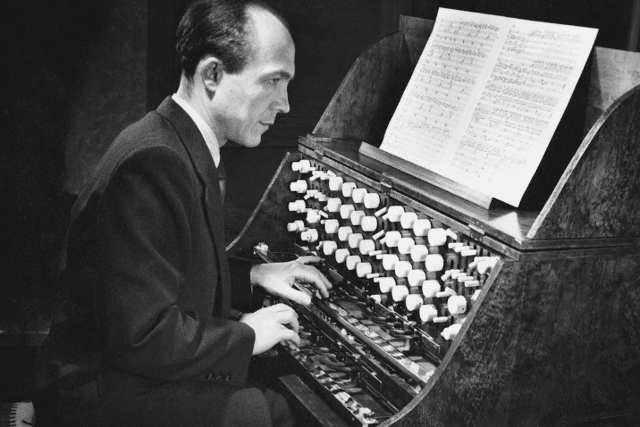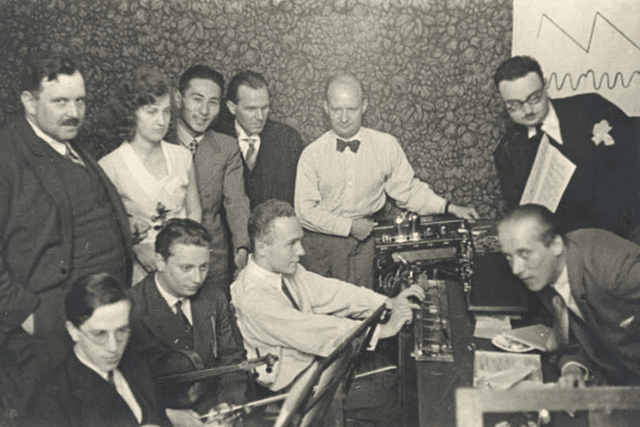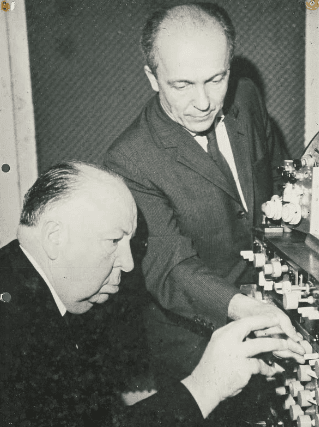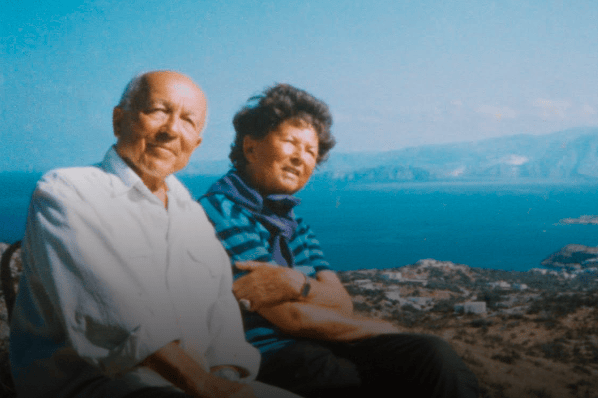Oskar Sala: who is German physicist and composer being remembered with Google Doodle - what age did he die?
and live on Freeview channel 276
Today, Monday 18 July, marks what would have been the 112th birthday of Oskar Sala, a world renowned electronic music composer and physicist best known for bringing electronic music to the world of TV, film and radio.
In honour of the famous composer, Sala is being remembered with his very own Google Doodle - this is everything you need to know about the so-called “one man orchestra”.
Who was Oskar Sala?
Advertisement
Hide AdAdvertisement
Hide AdSala was a 20th century German physicist, composer and a pioneer of electronic music who played an instrument known as the trautonium, which is something of a precursor to the synthesiser.
He was born in Greiz, Germany, on 18 July 1910 and was immediately immersed into the world of music - his mother, Annemarie, worked as a singer and his father, Paul, was an ophthalmologist with musical talents of his own.


As a child, Sala studied the piano and organ and, when he was 14, was creating sonatas and songs for the violin and piano. Sala performed classic piano concerts as a teenager and, in 1929, he moved to Berlin where he further pursued his interest in music by studying piano and composition at the Berlin Conservatory with composer and violist Paul Hindesmith.
When he first heard the trautonium, he became fascinated with it and the possibilities it presented. Sala became determined to master the instrument and to develop it even further - a determination that inspired his studies in physics and composition at school.
Advertisement
Hide AdAdvertisement
Hide AdHe specialised in the further development of the trautonium, studying physics at the University of Berlin in order to widen his knowledge of mathematics and natural sciences.


After the second World War, Sala developed the mixture trautonium, which included two manuals and pedals. The makeup of the mixture trautonium was so unique it was able to play several sounds or voices at the same time.
As well as the mixture trautonium, Sala also built the Quartett-Trautonium, Concert Trautonium and the Volkstrautonium.
In 1995, Sala donated his original mixture trautonium to the German Museum for Contemporary Technology and in 2000 he donated his estate to the Deutsches Museum.
What films did he work on?
Advertisement
Hide AdAdvertisement
Hide AdThroughout the 1940s and 50s, Sala worked on a number of film scores - in 1958 he established his own studio at the film company Mars Film in Berlin where he produced electronic soundtracks for films like Different from You and Me (1957), Rosemary (1959) and Das Indische Grabmal (1959).
Sala also produced the non-musical soundtrack for Alfred Hitchcock’s iconic film The Birds (1963), with the mixture trautonium creating noises like bird cries, hammering and slamming doors and windows.
The opportunity to work with Hitchcock came about when a former classmate of Sala’s who worked at Universal Studios in Hollywood heard that Hitchcock wanted to create the bird sounds for his film electronically.


After being impressed with a demo tape of the tratonium, Hitchcock asked Sala for a test soundtrack for one of the bird attack sequences in the film - after hearing that, Hitchcock then decided that the entire film should be electronic.
Advertisement
Hide AdAdvertisement
Hide AdHitchcock flew out to Sala’s recording studio in Berlin, where all the sound effects for the film were ultimately produced.
Over the course of his career, Sala received a number of awards for his compositions, including Best Music Award at the Industrial Film Festival in Berlin for the soundtrack to Der Facher and the Gold Filmband in 1987 for his work across more than 400 films.
In 1991 he was also honoured with the Merit Cross for a lifetime dedicated to music.
Sala died on 26 February 2002 at the age of 91.
Was he married?
Not much is known about Sala’s personal life, but he was married to his wife Käthe. The two travelled much of the world together, visiting countries like Italy, Greece, Egypt and America.


Käthe passed away in 1999.
What’s the Google Doodle?
Advertisement
Hide AdAdvertisement
Hide AdThe Google Doodle celebrating Sala depicts an illustrated version of the composer himself playing the mixture trautonium.
Each letter of Google is stylised in different ways and, in the upper left and right hand corners, are two birds, in a nod to Sala’s contributions to Hitchcock’s The Birds.
Comment Guidelines
National World encourages reader discussion on our stories. User feedback, insights and back-and-forth exchanges add a rich layer of context to reporting. Please review our Community Guidelines before commenting.
